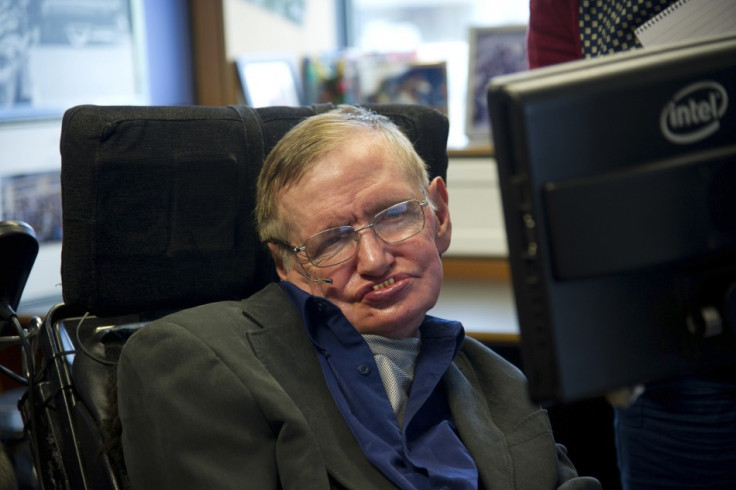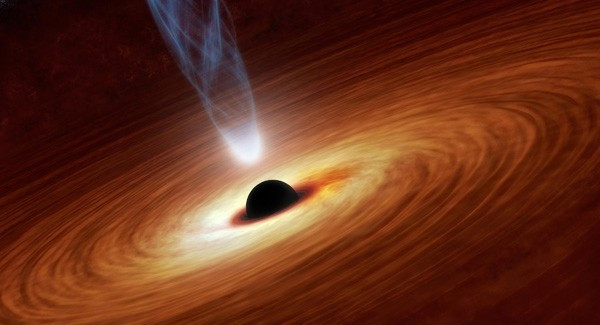Stephen Hawking on Black Holes: There is No Such Thing as an Event Horizon

Stephen Hawking has put forward a new theory about black holes in a paper posted online, which says event horizons – the gravitational pull that makes escape impossible - do not exist.
Speaking to Nature magazine, the renowned physicist said that in classic theory, there is no escape from a black hole. Quantum theory, however, allows "energy and information to escape".
He said that, to explain this process, a theory must merge gravity with other forces of nature: "The correct treatment remains a mystery."
In his paper on the University of Cambridge website, Hawking has proposed an "apparent horizon" that "temporarily holds matter and energy prisoner before eventually releasing them", Nature said.
Entitled Information Preservation and Weather Forecasting for Black Holes, Hawking attempts to solve the black hole paradox that was first discovered by physicists from the Kavli Institute for Theoretical Physics in Santa Barbara two years ago.
In their paradox, they looked at what would happen if an astronaut fell into a black hole. They found that under quantum theory, the astronaut would be burned to a crisp – not float iunaware of their fate until they are pulled in and crushed in the black hole's dense core, as had previously been assumed.
This posed problems because it went against Einstein's general theory of evolution, which says the laws of physics are identical everywhere in the universe. His theory would say an event horizon would be an "unremarkable place".

Hawking has now proposed a third option, which allows quantum mechanics and general relativity to remain intact: that black holes do not have an event horizon to burn the astronaut.
"In place of the event horizon, Hawking invokes an 'apparent horizon', a surface along which light rays attempting to rush away from the black hole's core will be suspended, Nature says.
"In general relativity, for an unchanging black hole, these two horizons are identical, because light trying to escape from inside a black hole can only reach as far as the event horizon and will be held there, as though stuck on a treadmill.
"However, the two horizons can, in principle, be distinguished. If more matter gets swallowed by the black hole, its event horizon will swell and grow larger than the apparent horizon."
Don Page, a physicist and expert on black holes at the University of Alberta in Edmonton, who worked with Hawking in the 1970s, commented on his new theory: "The picture Hawking gives sounds reasonable. You could say that it is radical to propose there's no event horizon.
"But these are highly quantum conditions, and there's ambiguity about what spacetime even is, let alone whether there is a definite region that can be marked as an event horizon."
© Copyright IBTimes 2025. All rights reserved.






















